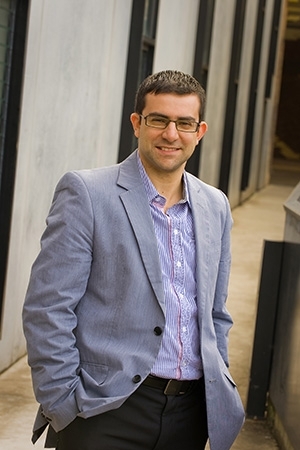Is social media damaging our relationships?
Research news
Reflecting major social change in society, relationship researchers are increasingly investigating the effects of social media on our relationships with partners, family and friends, says Dr Gery Karantzas, Senior Lecturer and Director of the Relationship Science Laboratory at Deakin.
Dr Karantzas will Chair the 14th National Conference of the Australian Psychological Society’s Psychology of Relationships Interest Group (APS-PORIG), which will be held at Deakin’s Melbourne City Centre, on 8-9 October.
Bringing together scholars, practitioners and policy makers from all fields, the conference will cover a broad spectrum of relationship issues and types. Entitled “The Changing Face of Relationships,” it will include topics on romantic relationships, parent-child relationships, peer relationships, client-therapist relationships, and inter-group relationships.
Dr Karantzas explained that, while some researchers continue to focus on classic issues like trust and support in relationships, there is growing interest in the role of social media in determining how people form relationships and how it effects their maintenance of these relationships.
“Social media is a useful tool, but it is providing challenges for many people, in terms of how we make connections and how we go about forging and maintaining relationships,” he said.
“We are using social media to connect with some people, but our preoccupation with mobile devices and social media means that our most immediate and closest relationships can suffer, perhaps by spending more time on Facebook and less time with our partners, for instance.”
In line with other trends, researchers are increasingly studying homosexual and transgender relationships as these become more visible in society.
“In the past, people’s ideas about how they would navigate a romantic relationship was largely based on using one’s parents as a template or model to guide relationship behaviour. The diversity in relationships today makes it harder to rely on pre-existing socio-cultural norms or way of doing relationships. People are working out their own ways of how to manage relationships and sometimes they are making mistakes,” Dr Karantzas said.
He suggests that now more than ever, people need to learn how to be good decision makers, but many ingredients to successful relationships haven’t changed.
“Being engaged in effective problem solving with a romantic partner, listening and being sensitive to your partner’s needs, and not having preconceived or unrealistic expectations are as important today as they ever were.”
Share this story
 Relationships expert - Dr Gery Karantzas is set to Chair the 14th APS-PORIG conference.
Relationships expert - Dr Gery Karantzas is set to Chair the 14th APS-PORIG conference.
